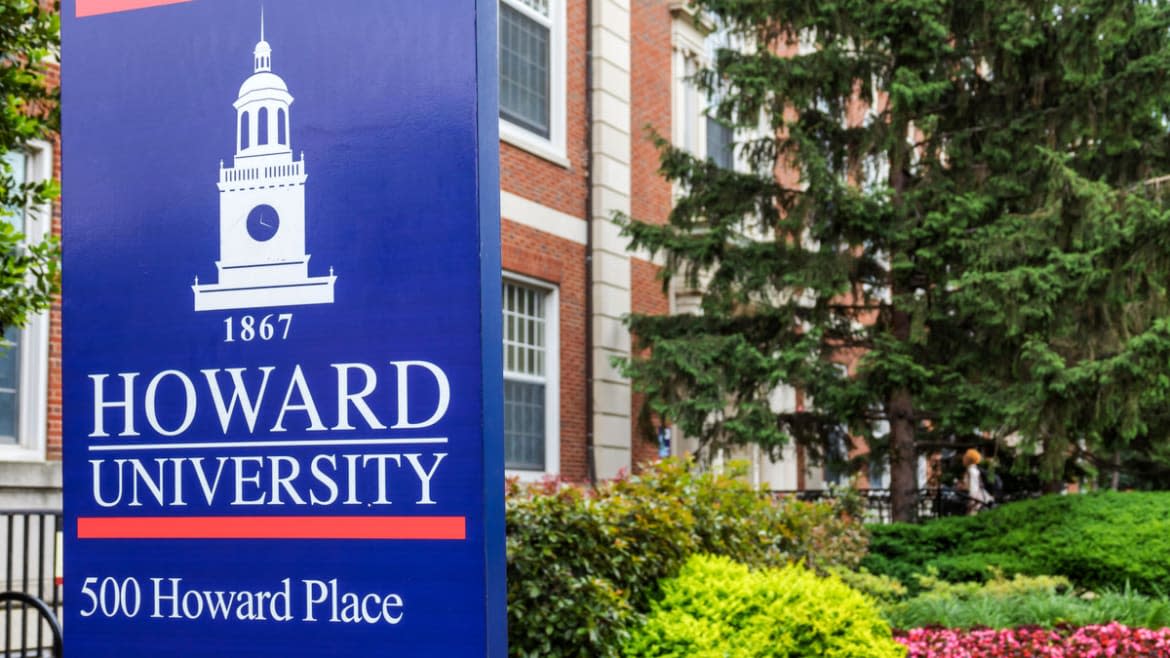Howard University Is Going to Lose Its Classics Department. Congress Could Save It for Peanuts.

Howard University is America’s only Historically Black College and University with a Classics Department. Citing budget cuts, however, Howard administrators recently announced that the university would be closing the Department, which has been part of the institution since its founding in 1867, as part of its “prioritization efforts”—a decision that’s been widely condemned.
Writing in the Washington Post last month, Cornel West and Jeremy Tate condemned the move as a “spiritual catastrophe” that reflects the broader de-prioritization of the humanities within American education. This week, two Howard professors, Brandon Hogan and Jeremy Tate, responded in the New York Times by defending the administration’s decision, arguing that the university’s limited endowment makes the decision difficult but essential. But there is a solution out of this impasse that has yet to be broached in the debate — one that would save the academic program at no additional expense to the university. Congress can, and should, simply fund Howard’s Classics Department.
The government does not typically provide direct funding for university expenses. But thanks to its unique role in the founding of Howard, Congress could easily step in and save the Classics Department from the budgetary chopping block. This solution stems from the political context in which the university was founded. In 1865, at the end of the Civil War, Radical Republicans in Congress sought to support the education and health of newly emancipated African Americans by establishing the Freedman’s Bureau, which provided schooling, hospitals, and other social services across the US.
The next year, members of the Congregational Church in DC organized the creation of a theological academy in the capital for African Americans – efforts that received key support when, in 1867, Congress approved a bill chartering the creation of Howard University “for the education of youth in the liberal arts and sciences.” Although a notorious racist and owner of enslaved people himself, President Andrew Johnson signed the charter at the same time as he signed into law the creation of the federal Department of Education. The legislation empowered Congress to make “annual appropriations” “to aid in the construction, development, improvement, endowment, and maintenance” of Howard — something that Congress has regularly done in the intervening years, appropriating about $240 million for 2020 and proposing $254 million for 2021.
The Department of Classics has been a fundamental part of Howard’s academic community since its founding – and its presence at this historically Black university holds a profound significance that extends well beyond Howard’s northwest DC campus. As the historian David Withun has noted, there is a sordid history of white supremacists denigrating Black people for supposedly being incapable of learning Greek and Latin. The presence of the Classics Department at one of the nation’s leading HBCUs has offered powerful evidence that disproves this pernicious, racist lie.
Betsy DeVos Whitewashes the History of Black Colleges
Moreover, Howard’s Classics department has been the incubator of pioneering scholarship on the presence and participation of Africans in the Greco-Roman world, seen especially in the groundbreaking work of long-time faculty member Frank M. Snowden, Jr., whose scholarship was recognized with the National Humanities Medal in 2003. At a moment when white supremacists both in the US and abroad have sought to seize upon a mythological account of the Greco-Roman past as validation for their claims of racial supremacy and fuel for their present day politics of hate, such a counterpoint is all the more urgent.
Paying to cover the cost of maintaining the Classics Department sits well within Congress’ responsibility under the Constitution to legislate for the District of Columbia, and its rich tradition of financial support for Howard’s academic programs. And such a move would map neatly onto the Democratic majority’s current push to address racial inequality in America especially through improved access to higher education. Given that the legislation places no limit on the amount of funding that Congress can appropriate for Howard, the government could work with the university to determine exactly how much additional funding would be necessary to prevent the Department from being reduced or eliminated.
Funding an academic department is by no means cheap – it requires money for hiring outstanding, tenure-line faculty, dedicated staff, and resources for supporting students. But in the context of federal government spending – where legislators rarely hesitate to drop several billion dollars on fighter jets and at a moment when Congress has decided to bring back earmarks – even the appropriation of a few million federal dollars to fund Howard’s Classics department will have a negligible impact on American taxpayers.
But saving the Howard department would both send a powerful message about Congress’ commitment to racial equality in higher education and have a transformative impact upon the faculty and students at one of the nation’s premier and most historically significant institutions. The Howard community richly deserves what the ancient Greeks called eudaimonia – the state of “human flourishing.” No better path to it than being able to study the Classics themselves.
Get our top stories in your inbox every day. Sign up now!
Daily Beast Membership: Beast Inside goes deeper on the stories that matter to you. Learn more.

